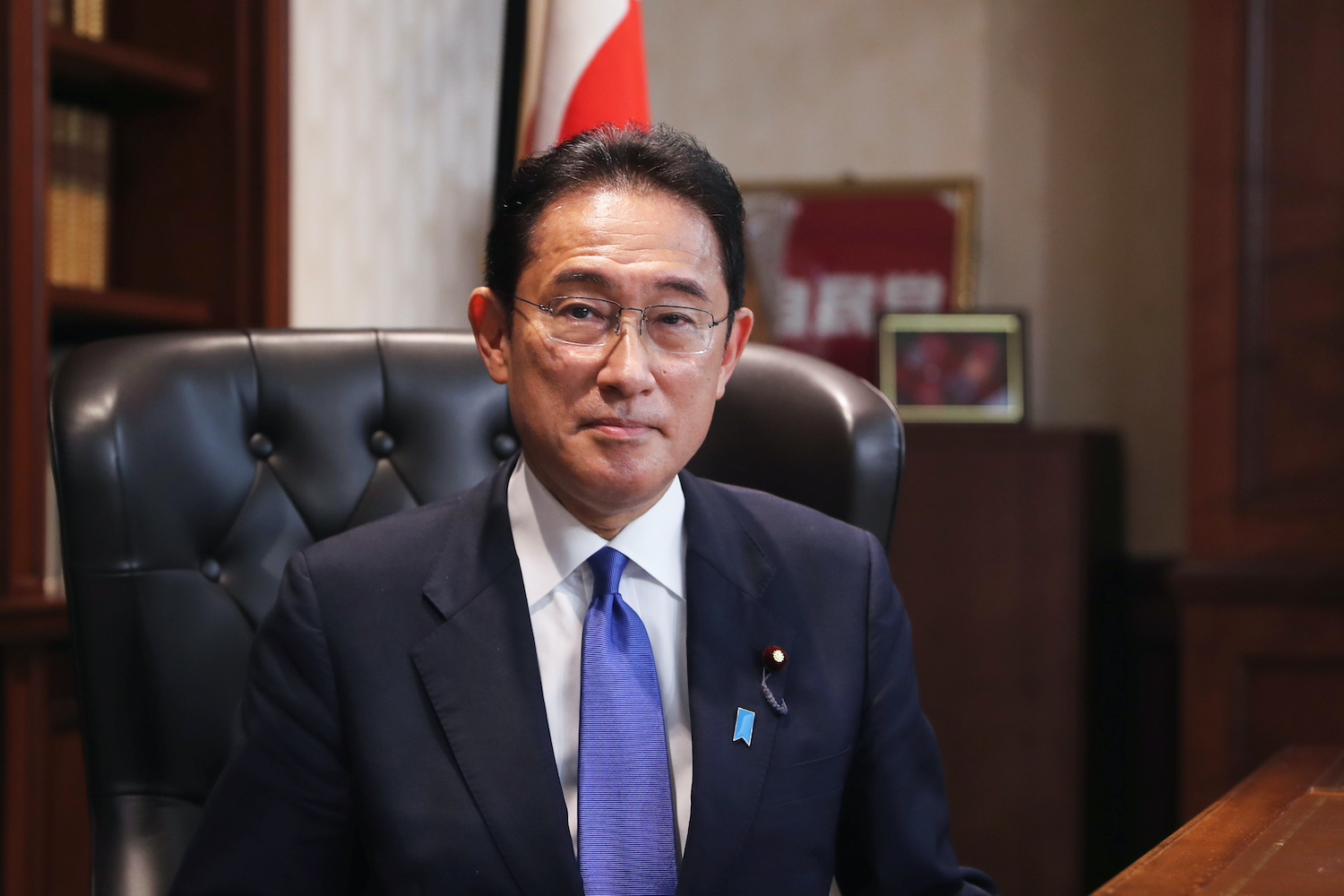Japan’s new prime minister Fumio Kishida unveiled his government on Monday, mixing holdovers with newcomers, after lawmakers voted him the new leader of the world’s third-largest economy.
The soft-spoken scion of a Hiroshima political family, 64-year-old Kishida beat popular vaccine chief Taro Kono to win the leadership of the ruling Liberal Democratic Party (LDP) last week.
He easily won Monday’s vote in parliament approving him as prime minister thanks to the party’s commanding majority.
Kishida bowed to his fellow lawmakers after the vote, but did not immediately speak. Earlier, he told reporters he was ready for the top job.
“I think it will be a new start in its true sense,” he said. “I want to take on challenges with a strong will and firm resolve to face the future.”
Kishida is widely considered a safe pair of hands, who commands support from his own faction within the LDP and is not expected to veer significantly from the government’s existing policies.
His election came after former prime minister Yoshihide Suga, who submitted his resignation on Monday morning, announced he would not stand for the LDP leadership after just one year in office.
Shortly after the parliament vote, Kishida’s new cabinet was announced, with more than a dozen fresh faces but holdovers from the Suga government largely populating the most important portfolios.
Both Foreign Minister Toshimitsu Motegi and Defence Minister Nobuo Kishi will retain their jobs. Motegi is a Harvard-educated political veteran who has taken the lead in negotiating key trade deals, while Kishi is the brother of former prime minister Shinzo Abe.
FRESH FACES
The finance portfolio will go to Shunichi Suzuki, who is replacing his brother-in-law Taro Aso. Suzuki is also a veteran politician and the son of a former prime minister. He has served in government before, holding both the Olympics minister and environment minister posts.
The cabinet includes three women, among them Kishida’s one-time rival for the leadership, Seiko Noda, who was named minister in charge of addressing Japan’s declining birthrate.
The posts of vaccine minister and digital minister also went to women, with several members of the cabinet appointed to their first ministerial post.
“The Kishida cabinet aims at balance with consideration given to major factions, young lawmakers, and neighbouring countries,” wrote Junichi Makino, SMBC Nikko Securities chief economist, in a note.
“It’s the kind of cabinet formation that reflects Kishida, who works not to make enemies.”
Kishida has also rewarded those who supported him in the leadership race, including rival Sanae Takaichi who backed him in the second-round vote against Kono, and has been made LDP policy chief.
Kono, meanwhile, has been made party communications chairman – something of a step down from his recent role heading the vaccine roll-out and past posts as defence and foreign minister.
ELECTION LOOMS
As prime minister, Kishida faces a raft of challenges, from the post-pandemic economic recovery to confronting military threats from North Korea and China.
He will also lead the LDP in general elections, which local media reported would be held on October 31, a few weeks earlier than expected.
The ruling party and its coalition are widely expected to retain power, but could be vulnerable to losing some seats, with the public unhappy about the government’s response to the coronavirus.
Suga’s government saw its approval ratings slump as it struggled to tackle waves of infection, including a record virus spike over the summer while the Olympics were being held in Tokyo.
Kishida’s leadership campaign emphasised his plans to correct government missteps on the pandemic, including a pledge to unleash new economic stimulus.
Much of Japan has been under virus emergency measures for a large part of the year, with the restrictions finally lifting last week as new infections decline.
More than 60% of the population is now fully vaccinated, but there are concerns that the healthcare system could easily become overwhelmed again in a new virus wave.
NEW STIMULUS
Kishida has pledged to spend big on new pandemic stimulus, vowing to tackle income inequality and move away from the neo-liberal economics that have dominated Japanese politics for the past two decades.
“I want to re-establish a virtuous circle between growth and distribution, so as many as possible across the whole archipelago can reap the rewards,” he said after last week’s party leadership vote.
Seeking to set himself apart from the unpopular pandemic response of Suga’s government, the new premier has also touted his listening skills and vowed to “create an atmosphere in which we can address the crisis together”.
Kishida served as foreign minister between 2012-17, during which time he negotiated accords with Russia and South Korea, with whom Japan’s relations are often frosty.
He has called abolishing nuclear weapons “my life’s work”, and in 2016 helped bring then-US president Barack Obama to Hiroshima on a historic visit.
But despite his liberal reputation, he has been reticent on some social hot-button issues like gay marriage, saying he had “not reached the point for accepting same-sex marriage.”
He has also taken a cautious line on allowing married couples to keep separate surnames, another controversial issue.
• AFP with additional editing by Jim Pollard
ALSO SEE:
Fumio Kishida Wins Vote To Become Japanese Ruling Party Leader, PM
























